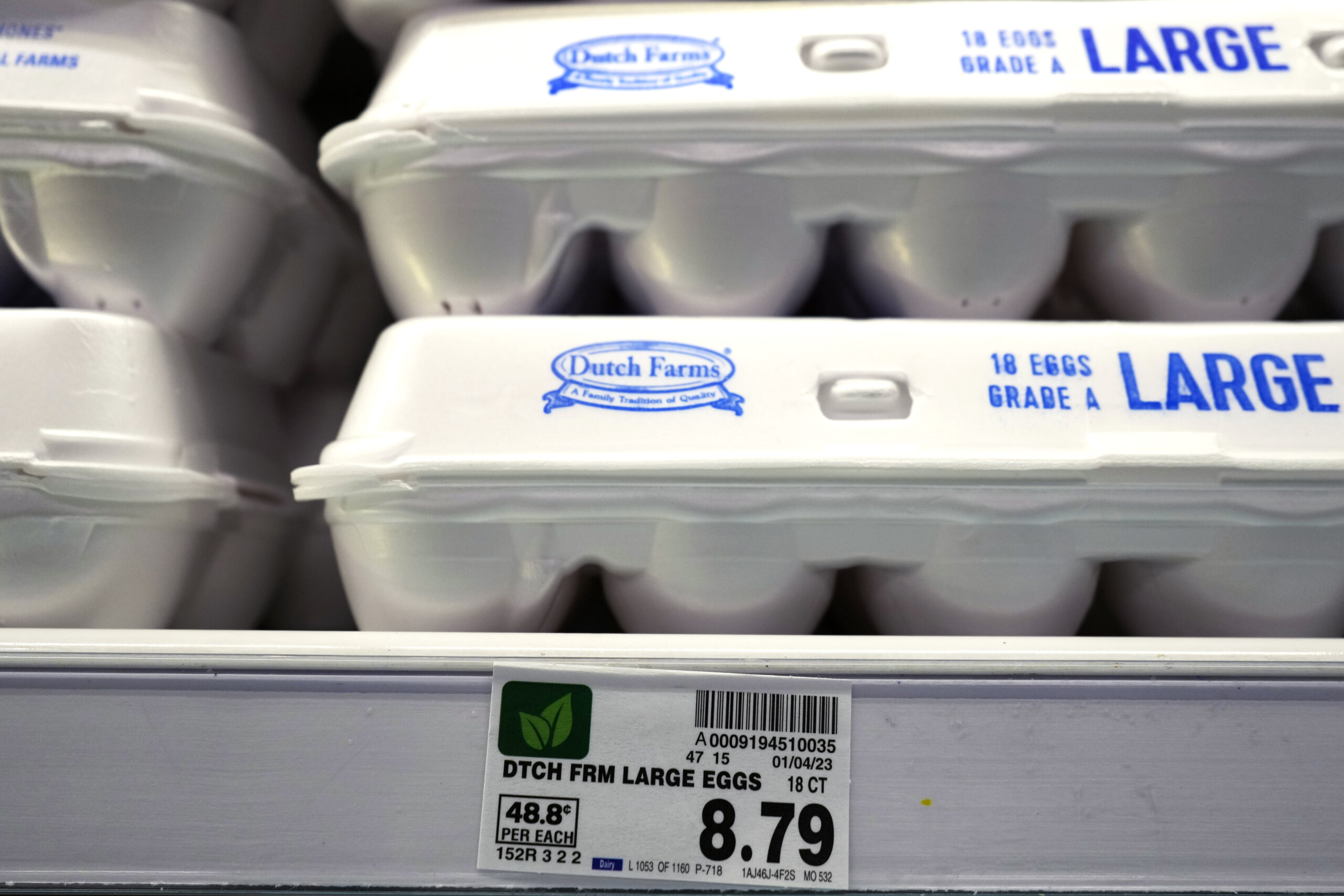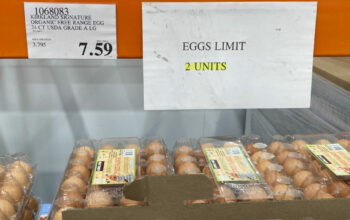Dawn Mohr stopped by the local Piggly Wiggly to pick up $6 worth of pork steaks last week and immediately remembered just how much she’s grown to hate grocery shopping.
“Everything is so damn high,” she said, shaking her head at $3.09 bottles of Coca Cola. “Good ol’ Biden.”
Mohr, a 54-year-old home health-care aide, mostly shops the clearance aisles. Her $17 hourly paycheck, which inched up 80 cents in the past two years, is hardly enough to cover the basics anymore. She says there’s no question she’ll vote for Donald Trump again. Every trip to the supermarket cements her resolve.
“When Trump was president, there wasn’t inflation,” she said. “We could afford food.”
The mood around the sodas past Aisle 9 of the Piggly Wiggly is a stark reminder of what matters most to Americans this election year. In poll after poll, voters say inflation — and grocery prices in particular — is a leading concern.
That’s true in this Midwestern manufacturing town overflowing with well-paying jobs, rock-bottom unemployment and some of the lowest gas, food and housing prices in the nation. Kitchen and bath product maker Kohler Co. and food manufacturers Johnsonville and Sargento Foods are all headquartered nearby, providing a steady stream of stable careers. The unemployment rate, at 2.1 percent, is one of the lowest in Wisconsin.
Still, Sheboygan residents have one persistent gripe: As with elsewhere in the country, grocery prices have risen 25 percent in four years, driving much of their economic discontent.

















